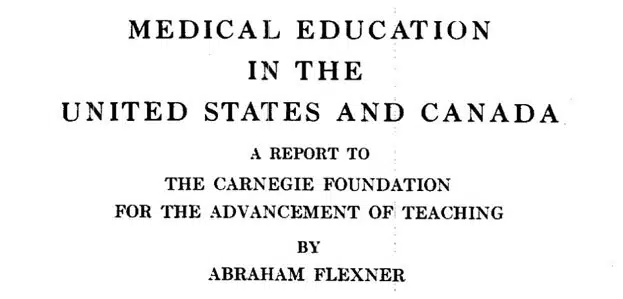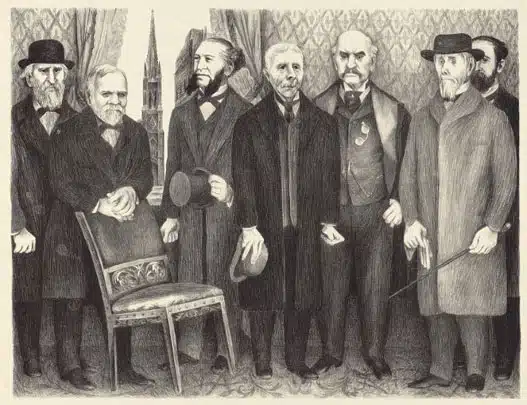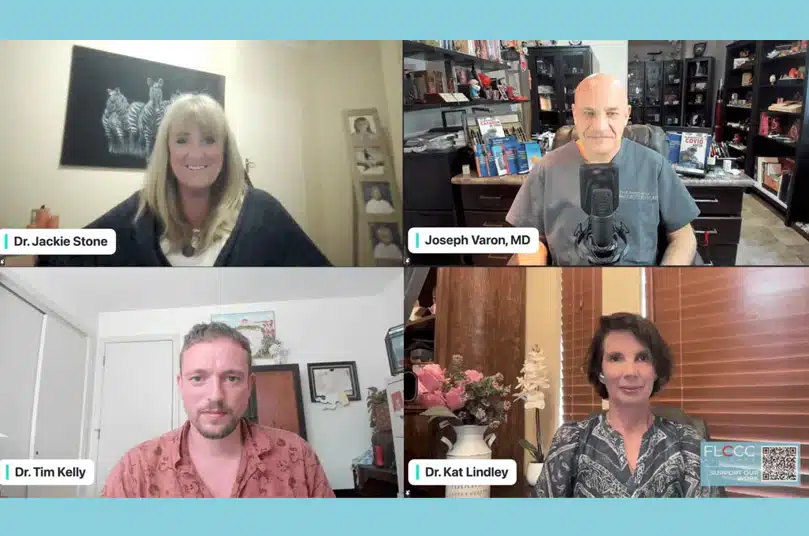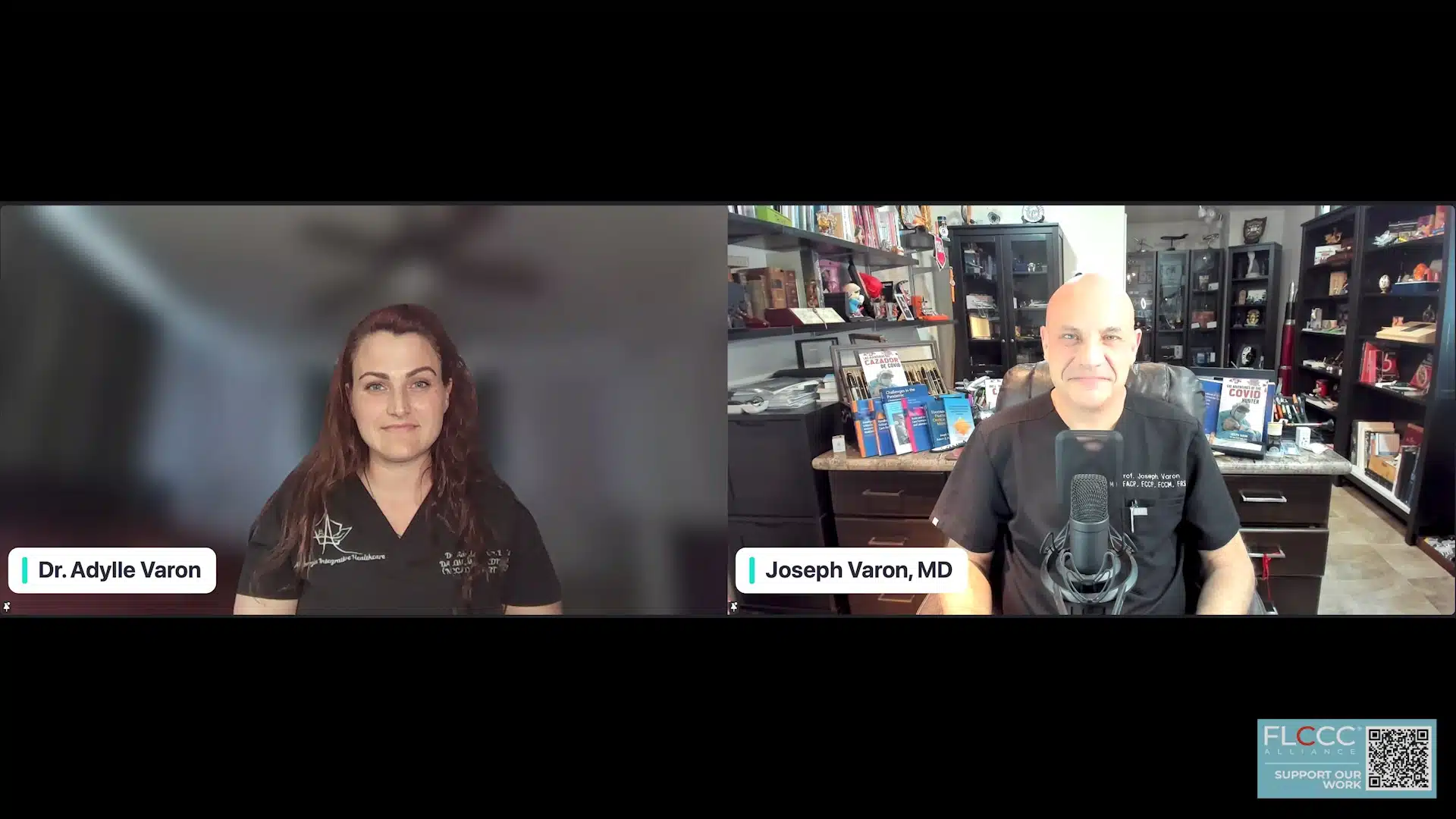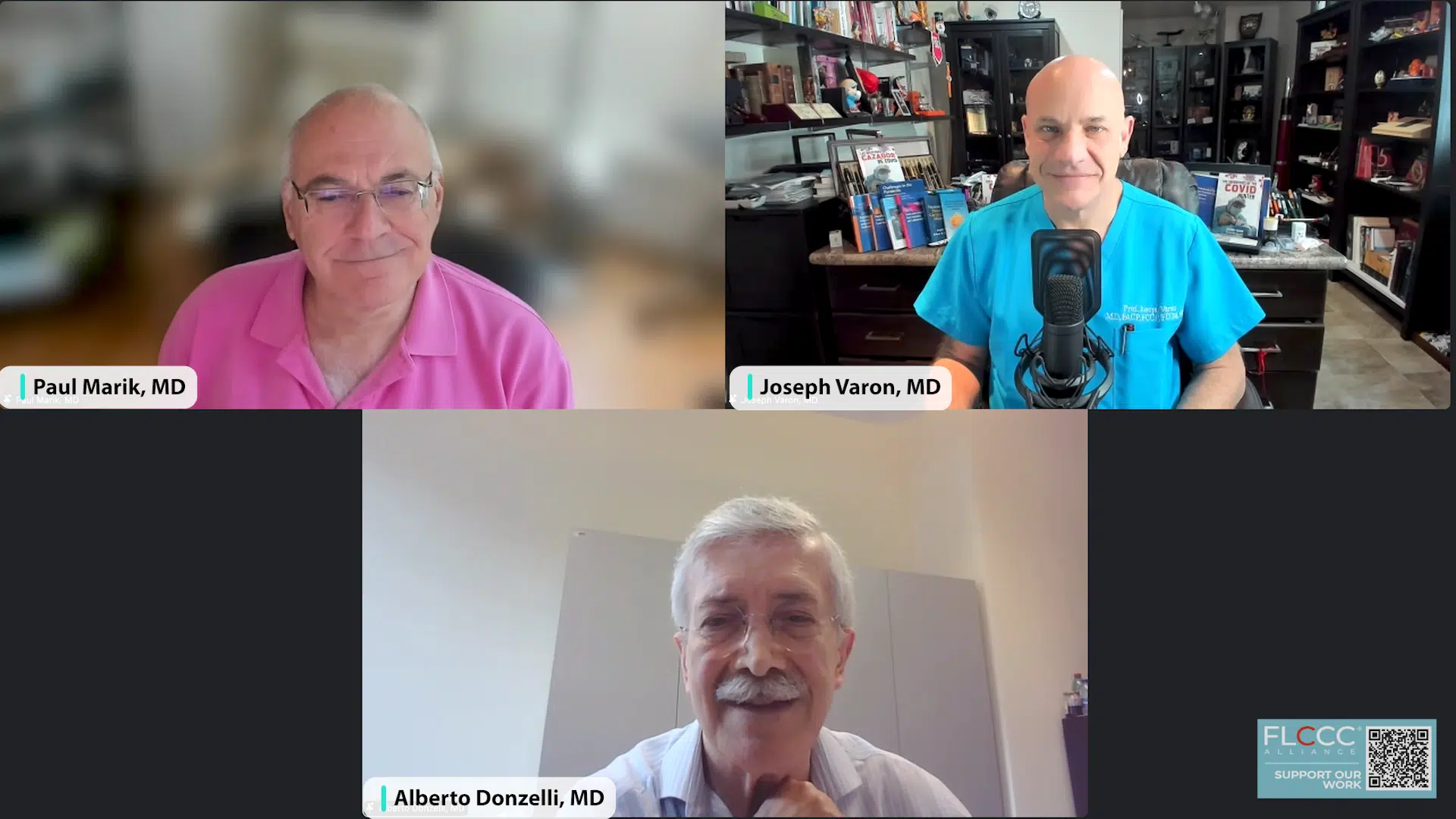Speakers: Dr. Paul Marik, Dr. Joseph Varon, and Justin Smith
What a great discussion (and history lesson) we had last night (March 20, 2024)! Dr. Paul Marik and Dr. Joseph Varon were joined by independent filmmaker and author Justin Smith to discuss his new documentary, In the Shadow of Flexner. The Flexner Report, published in 1910, became the philosophical cornerstone of “modern” medicine by championing medication and surgery over nutrition and naturopathy. The pivotal report cut a path for Big Pharma to gain control of Western medicine.
In The Shadow of Flexner
Back in 1910, Abraham Flexner published a groundbreaking report that dramatically transformed medical education in the United States and Canada. This report led to the phasing out of various forms of natural medicine from medical schools, favoring patentable drugs subjected to scientific testing.
Before the Flexner Report, people often turned to a diverse range of treatments, including nutrition, herbal remedies, homeopathy, and electro-medicine. Flexner argued for a new direction, suggesting that scientific testing should underpin medical treatments, shifting away from what he considered outdated and unscientific methods.
Today, it’s widely observed that doctors receive minimal nutritional education and often overlook treatments that don’t involve pharmaceuticals. This reflects a significant shift in medical education and practice since Flexner’s time.
Filmmaker Justin Smith highlights the need for a reassessment of Flexner’s influence over a century later, “Perhaps it is time to ask if the narrowly-focused approach established by Abraham Flexner is serving patients well,” a question he explores in our latest Weekly Webinar episode and further in his documentary, “In the Shadow of Flexner.”
Who Was Abraham Flexner?
Interestingly, Flexner wasn’t a medical professional. He had degrees in classics like Greek and Latin. His brother, Simon Flexner, was the first medical director of the Rockefeller Medical Foundation, which connected Abraham with influential circles.
Despite his non-medical background, Flexner was chosen for his perceived objectivity. As Smith explains to Dr. Marik and Dr. Varon:
“Flexner himself was surprised to have been asked to write the report because he was not medically qualified. But actually, he was chosen because he wouldn’t be biased like a doctor might be. An educationalist like him was thought to be an external investigator.”
What Exactly Was The “Flexner Report” of 1910?
The “Flexner Report” of 1910 is a pivotal document that reshaped the landscape of medical education in North America. It was commissioned by Andrew Carnegie and his Foundation for the “Advancement of Teaching” to evaluate medical education. The goal of the document was to assess the quality and effectiveness of medical schools in the United States and Canada.
Under the leadership of then-president Henry S. Pritchett, The Carnegie Foundation sought to elevate the standards of medical education. They believed that applying scientific rigor and standards would not only improve the training of doctors but also enhance the overall health and welfare of the public.
At the tail end of the scientific and industrial revolution, there was genuine belief in the benefits of applying the scientific process to every convention, including medicine. Perhaps that’s why the report was accepted so broadly, though it certainly had some powerful people propelling it forward.
Who Funded The Flexner Report and Why?
As stated, the Flexner Report was funded by The Carnegie Foundation. But, there was another backer whose name you might have heard before: John D. Rockefeller. Yes, that guy – the quintessential robber baron from the Gilded Age!
Let’s be generous and say it can be debated whether Carnegie and Rockefeller had designs on launching a new pharmaceutical paradigm. But make no mistake, that’s exactly what the Flexner Report ushered in. It made the case that old, traditional medicine is bad, and new pharmacologic medicine is good—because we’ll use science to make darn sure it’s good… If only that were the case.
Rockefeller, as owner of 90% of the American petrol industry at the time, personally stood to gain as petrochemicals were emerging as a profitable sector. Today, they are used extensively in producing active pharmaceutical ingredients (APIs), solvents, excipients, and packaging materials. The petrochemical industry as it relates to pharmaceuticals alone is valued in the hundreds of billions of dollars today.
For better or worse, when the richest people and the most influential people get together, they can make things happen. The pharmaceutical industry, as we know it, stemmed from the initial investment by the Rockefeller and Carnegie foundations into medical universities following the Flexner Report’s recommendations. And that’s a fact that very few current-day medical practitioners are even aware of.
How Did the Flexner Report Change Medical Education?
The Flexner Report is credited—or blamed—for shaping the healthcare model prevalent today. “After the Flexner Report was published, funding was only given to those schools that could comply with the recommendations from the report. And everybody else who didn’t have enough money to do so couldn’t survive and compete in the new marketplace,” Smith notes.
This had a profound and lasting impact on American medical education, including a significant effect on medical schools that served Black Americans. At the time the report was released, there were seven medical schools for Black students. After the report’s recommendations were implemented, only two remained: Howard University College of Medicine in Washington, D.C., and Meharry Medical College in Nashville, Tennessee.
The plight of Black physicians and Black medical schools was only the tip of the iceberg. The experience of medical students was changed forever under the new medical training standards propped up by Flexner. As Dr. Marik puts it:
“The entire medical curriculum is based on pharmacology and interventions, rather than traditional medicine, herbal medicine, nutritional therapy – nutrition is not taught at medical school, nor is anything taught about herbal medicine. So this seems to be what the plan was: to completely eliminate anything that was against this model.”
How Did The Flexner Report Impact Health Care and Medical Practice?
As Smith’s film highlights, the new model established by Flexner presents a reality where any medical practitioner daring to operate beyond the established medical norms faces systematic scrutiny.
We saw this increasingly during COVID, and indeed our own FLCCC Alliance doctors found themselves in the crosshairs for daring to practice medicine how they saw fit based on their clinical experience and research.
If you watch the webinar above, you’ll hear Dr. Varon talk about how he needs to be discreet when suggesting supplements like Berberine rather than pharmaceuticals. At FLCCC, a huge portion of our treatment guidance leverages natural remedies. But as Dr. Marik rightly points out, the issue is that there’s no money in it:
“The problem is you can’t patent the drug if it’s something from nature, so then there’s no economic benefit or profit motive to drive research.”
No wonder the Flexner Report hijacked natural medicine. It was unprofitable. The report muscled out natural treatments, calling them unproven and unsafe. The new rules were in: play by them, or be prepared to face Goliath.
A great example of how our current system doesn’t work? Statins. Dr. Marik spells it out:
“As Justin’s documentary has shown, statins have a minimal effect — if any — in terms of coronary artery disease, they have these terrible side effects like dementia and diabetes, yet they are the most commonly prescribed drugs. And if you were to adopt an alternative approach, you would be reprimanded even though dietary and other herbal approaches are likely to be more effective”.
What Can Be Done In The Shadow of Flexner?
We can all agree that the flawed medical system needs fixing. But where do we start? Smith says he made his film to shine a light on the broad issues facing our medical system. The more people know about the pitfalls of modern medicine, the better they can avoid them.
It’s an honorable mission, one we share of course! We are grateful for Smith’s time in this week’s webinar and can’t wait to see what he does next. Check out more of his work at statinnation.com.
If you haven’t already, don’t forget to sign up for our weekly webinar to catch it live and ask questions during the show. And don’t forget that the conversation continues in the FLCCC Forums!
More on: Dr. Joseph Varon | Dr. Paul Marik | Flexner Report | In the Shadow of Flexner | Justin Smith | Statin Nation



